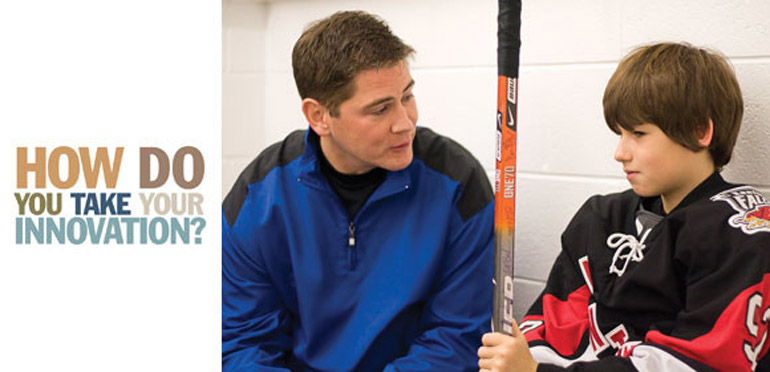
Sport psychologist Eddie O’Connor (Ph.D. PSYC ’98) recalls the high school tennis player who sat in his office and cried in front of her father because she felt that if she didn’t win on the court, her dad wouldn’t love her at home. The astounded father told her that wasn’t true.
“Then why don’t you ever tell me how proud you are of me?” the sobbing girl asked. “If you could just say that to me, that’s all I’d need to hear before a match.”
O’Connor, director of the Performance Excellence Center, a division of Mary Free Bed Rehabilitation Hospital in Grand Rapids, Mich., says the biggest problem for athletes is dealing with the pressure of winning. And losing-whether it’s in one-on-one play like tennis, or in a team sport such as football-can create negative thinking, which lowers athletes’ confidence in their abilities.

“Many people don’t know how to rebound from mistakes,” O’Connor says. “When educating young athletes, mental training must be an important part of their conditioning.” While O’Connor works predominantly with high school and college athletes, he has also helped Olympic hopefuls, Junior Olympians, and golfers perform better by teaching them how to decrease stress through focus, concentration, confidence, and arousal regulation.
Focus requires intention and goal setting. “If you want to achieve something, you have to give it your all,” O’Connor says. “One of my mottoes is, ‘Average isn’t good enough.’”
Concentration involves focused attention toward achieving a goal, while confidence means believing the goal can be achieved. Arousal regulation refers to one’s ability to adjust their physical and mental intensity in certain situations.
Scott Seifferlein, owner of GrandRapidsGolfLesson.com, a golf instruction school, says O’Connor’s program for golfers “teaches people to get over their frustration so they can think clearly on their next shot.”
When he counsels student-athletes, O’Connor inquires about family dynamics, injury history, health behaviors (such as sleep and eating habits), stressors, and the role of sports in the individual’s life.
“The bottom line is,” he asks, “if you’re not enjoying sports, why do it? Are you playing for fun, or is your goal to have a career in the NFL?”
Besides helping athletes achieve their goals, O’Connor says the lessons of sport psychology transcend just sports. “I want to put sport psychology on the front page,” he says. “If people learn how to deal with winning and losing in all situations, that will improve everyone’s quality of life and make the world a better place.”
More Online
IIT College of Psychology: humansciences.iit.edu/psychology
O’Connor’s website: www.maryfreebed.com/rehabilitation/sports-rehabilitation/sport-psychology/